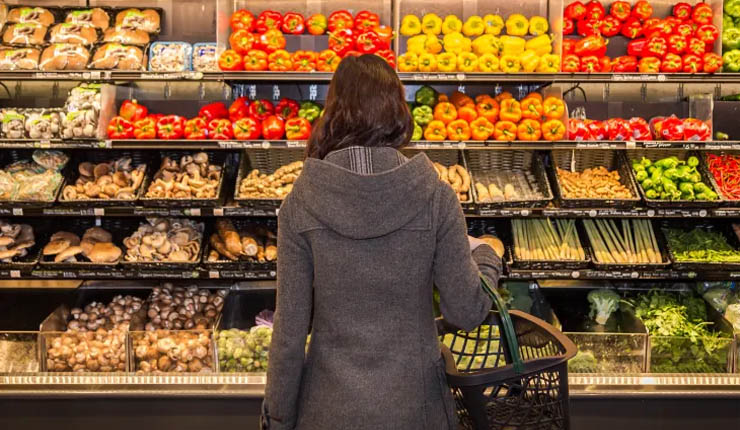UK grocery inflation has been inclining in February to reach its highest recorded rate of 17.1 percent, according to industry data released on Tuesday.
Prices in markets like milk, eggs and margarine are increasing with a swift pace, and UK households are facing an £811 increase on their annual shopping bills, unless they cut their costs, said market researcher, Kantar.
“This February marks a full year since monthly grocery inflation climbed above 4%. This is having a big impact on people’s lives,” said head of retail and consumer insight at Kantar, Fraser McKevitt.
The grocery prices crisis is the second most important financial issue for the public, after energy costs, as one out of four people say they are struggling financially, while being one in five last year, McKevitt added.
UK consumers have been facing a financial crisis since 2022, as the government started cutting back support on household energy bills this year and the rise in mortgage rates.
Sales of own label products went up to 13.2 percent in February, while sales of branded products that are more expensive were 4.6 percent, UK grocery sales inclined by 8.1 percent in the 12 weeks since February 19, Kantar reported.
German discounter brands Aldi and Lidl were the fastest growing grocers, with Aldi’s sales reaching 26.7 percent and Lidl’s were 25.4 percent, as they opened new stores in the UK. Tesco’s sales were up by 6.6 percent, while Sainsbury’s were 6.2 percent, Asda’s were 5.9 percent and Morrisons’s sales declined to 0.9 percent.
